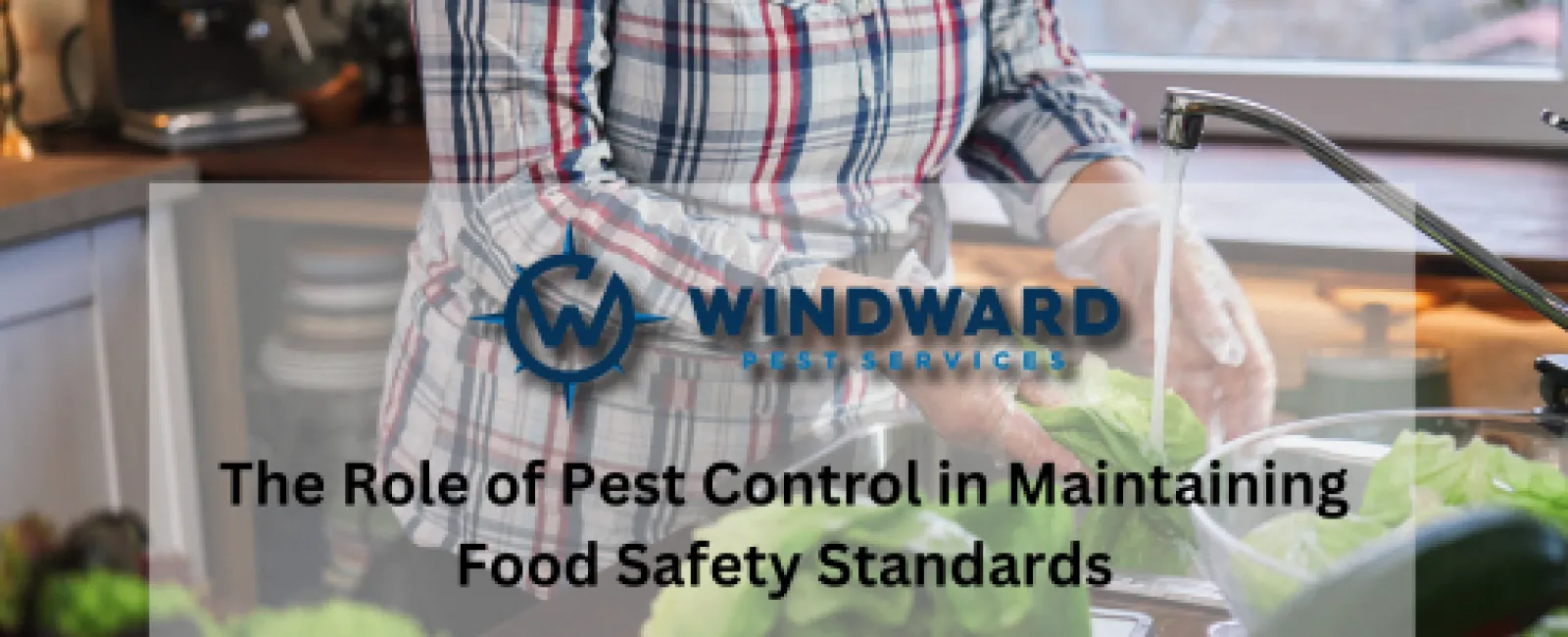Maintaining food safety standards is critical for any establishment that handles food, whether it's a restaurant, a grocery store, or a food processing plant. Effective pest control is a vital component of ensuring food safety. Windward Pest Services, a leading Atlanta pest control provider, offers comprehensive Atlanta interior and exterior pest treatments that help maintain these standards. Here's a detailed look at the role of pest control in food safety.
Understanding Food Safety Standards
Food safety standards are designed to ensure that food is safe for consumption. These standards cover various aspects, including hygiene, storage, preparation, and transportation of food. Pest control is an essential part of these standards, as pests can contaminate food and pose serious health risks.
- Contamination Risks: Pests such as rodents, insects, and birds can contaminate food with pathogens, including bacteria, viruses, and parasites. These contaminants can cause foodborne illnesses, which can be severe and even life-threatening. For instance, rats and mice are known carriers of Salmonella and Hantavirus, which can lead to serious illnesses if ingested.
- Regulatory Compliance: Food establishments must comply with local, state, and federal regulations regarding food safety. Effective pest control helps ensure compliance with these regulations and prevents costly fines and shutdowns. Regulations such as the Food Safety Modernization Act (FSMA) and Hazard Analysis Critical Control Point (HACCP) guidelines mandate rigorous pest control measures to ensure food safety.
- Protecting Reputation and Revenue: Beyond health risks and regulatory compliance, maintaining high food safety standards is crucial for protecting the reputation of food businesses. An infestation can lead to negative reviews, loss of customer trust, and a decline in revenue. Regular pest control measures can prevent these adverse outcomes, ensuring that the establishment maintains a positive image and continues to attract customers.
The Role of Pest Control
Pest control is crucial for preventing contamination and maintaining food safety standards. Windward Pest Services provides comprehensive pest inspections and treatments to address pest issues effectively.
- Regular Inspections: Regular pest inspections are essential for identifying potential pest issues early. Windward Pest Services offers thorough pest inspections for both Atlanta residential and commercial pest services. These inspections help in early detection of infestations, allowing for timely interventions before pests can cause significant damage.
- Preventive Measures: Implementing preventive measures can help keep pests at bay. This includes sealing entry points, maintaining cleanliness, and using appropriate pest control products. Preventive measures such as installing door sweeps, repairing leaks, and maintaining proper food storage practices are effective in creating a hostile environment for pests.
- Integrated Pest Management (IPM): An IPM approach involves a combination of preventive measures, regular inspections, and targeted treatments. This holistic approach is effective in managing pest populations and minimizing the risk of contamination. IPM focuses on long-term prevention and control, using environmentally friendly methods that reduce reliance on chemical treatments.
Common Pests in Food Establishments
Different pests pose various risks to food safety. Understanding the common pests and their impact on food safety is essential for effective pest control.
- Rodents: Rodents, such as mice and rats, can contaminate food with their droppings, urine, and hair. They can also cause damage to food packaging and structures. Rodents are notorious for gnawing on electrical wires, which can lead to fire hazards.
- Insects: Insects such as flies, cockroaches, and ants can spread pathogens and contaminate food. They are often attracted to food residues and waste. Flies, for example, can transmit diseases like E. coli and Salmonella by landing on food and surfaces after feeding on garbage or feces.
- Birds: Birds can contaminate food with their droppings and feathers. They can also cause damage to structures and create unsanitary conditions. Bird droppings can harbor diseases such as Histoplasmosis and Cryptococcosis, posing health risks to employees and customers.
Implementing Effective Pest Control Measures
Effective pest control requires a comprehensive approach that includes regular inspections, preventive measures, and targeted treatments.
- Regular Inspections: Schedule regular pest inspections with Windward Pest Services. Their experienced technicians can identify potential pest issues and recommend appropriate treatments. Regular inspections help maintain a proactive approach to pest management, ensuring that any emerging issues are promptly addressed.
- Sanitation and Hygiene: Maintaining high standards of sanitation and hygiene is crucial for preventing pest infestations. This includes regular cleaning, proper waste management, and ensuring that food storage areas are clean and organized. Effective sanitation practices reduce food and water sources that attract pests.
- Exclusion Techniques: Seal any entry points that pests can use to enter the establishment. This includes cracks, gaps, and holes in walls, floors, and ceilings. Exclusion techniques also involve installing physical barriers such as screens, door sweeps, and air curtains to prevent pests from gaining access.
- Pest-Proofing: Implement pest-proofing measures such as installing door sweeps, window screens, and air curtains. These measures can help keep pests out of the establishment. Regular maintenance of these barriers is essential to ensure their effectiveness over time.
- Targeted Treatments: Use targeted pest control treatments to address specific pest issues. Windward Pest Services offers a range of treatments, including baiting, trapping, and chemical treatments, to effectively manage pest populations. These treatments are designed to be safe for food environments while effectively eliminating pests.
Training and Education
Training and educating staff on pest control practices is essential for maintaining food safety standards.
Staff Training: Train staff on the importance of pest control and how to implement preventive measures. This includes proper cleaning techniques, waste management, and identifying signs of pest activity. Well-trained staff can act as the first line of defense against pest infestations, ensuring that preventive measures are consistently applied.
Education: Educate staff on the risks associated with pests and the impact they can have on food safety. This helps create a culture of awareness and proactive pest management. Ongoing education ensures that staff remain vigilant and informed about the latest pest control practices and regulations.
Identifying the signs of wood-destroying insects and addressing infestations promptly is crucial for protecting your property from significant damage. At Windward Pest Services, our comprehensive Atlanta pest control solutions, including interior and exterior pest treatments and customized treatment plans, ensure effective pest management tailored to your specific needs. Our skilled technicians are trained to handle a variety of pest issues, providing reliable solutions that keep your home safe and structurally sound.

